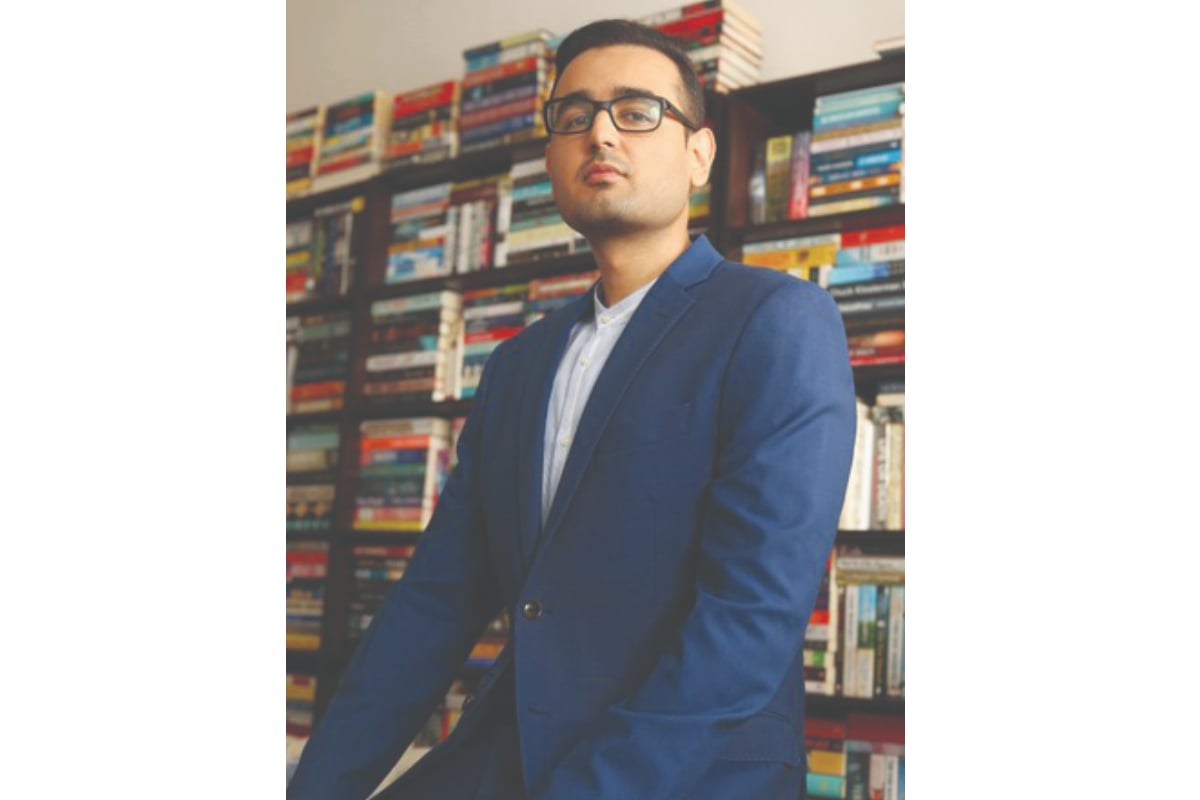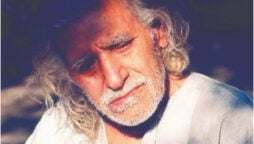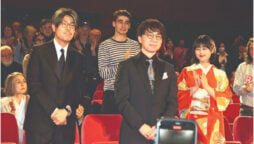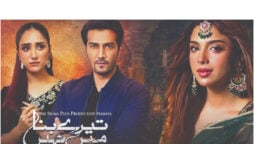
‘Toxic patriarchy is well and alive’ – Awais Khan
Awais Khan, an emerging English novelist from Pakistan, talks to BOLD in his exclusive interview
BOLD: Your first novel In the Company of Strangers portrays Lahore as a city of contradictions. How has this been depicted through the characters of Mona and Ali?
Awais Khan: It is quite evident from the varying standards of living that Lahore is a city of contradictions. While Ali is consumed by his need to provide for his family, counting every rupee that comes in, Mona, on the other hand, couldn’t care less about money. Her life is dominated by lavish society parties and a cocoon of security that comes with having a lot of money in Pakistan. Despite all her privilege, she is not immune to domestic abuse, misogyny and shaming.
It is widely believed that Pakistani writers tend to focus their narratives on the surge of militancy in the country. Given that your novel also begins with a bomb blast, can we assume that you felt the pressure to conform to this trend? In what ways have you tried to escape this trend?
I agree that the ‘terrorism’ storyline has been used so frequently that it has almost become a trope. Having said that, one cannot discount the devastating ramifications this period has had on Pakistan. When I started writing In the Company of Strangers (ITCOS), things weren’t great in Lahore. In fact, things were so bad that before leaving home in the morning, you would wonder if you’d ever return.
This fear and vulnerability informed my writing, but I was also conscious of the fact that I couldn’t let terrorism rule my book. Yes, it had wreaked havoc in Pakistan, but I didn’t want terrorism to define us. That is why my focus was on the secrets and lies of Pakistan’s elite class against the backdrop of terrorism. For the most part, the book deals with issues plaguing our society, such as domestic abuse, toxic patriarchy, misogyny, etc.
What were some of the major themes you wanted to explore through the novel?
There are several themes I wanted to explore through ITCOS. The most important one involved dissecting privilege in Pakistan. I wanted to show that just because a certain segment of society is wealthy doesn’t mean they are immune from all worries. Women especially have to battle with a range of social issues. For example, Mona is a victim of domestic abuse despite the fact that Mona has all the money in the world. She just cannot break that vicious cycle no matter how hard she tries. Toxic patriarchy is so firmly rooted in Pakistani society that often it is very difficult for women to break through it.
I wanted to show that struggle and the fact that in this day and age, these things continue in Pakistan. Similarly, women from all walks of life have to face blatant misogyny in Pakistani society. It was very important for me to show how easily people got away with it. Name-calling, incisive remarks, overt shaming and sexism are a sad reality in Pakistan.
A reviewer commented that “In the Company of Strangers delves into the neuroses of the social elite, pointing out its opulence and ill-disguised conservatism”. How did the so-called elite react to the novel?
They have actually responded pretty well. For the most part, the response to the book has been phenomenal. I have received messages from many people saying that it felt like they were reading their own life story in the book, that they have been victims of these toxic practices and have never had the courage to stand up to them. A lot of people said that the book gave them courage and opened their eyes to how deep this toxicity runs and how much still needs to be done.
This is why movements like the Aurat March are so important. People are starting to realise just how pervasive toxic patriarchy is and how desperately things need to change for the better.

Did the emphasis on the elite serve to isolate readers?
I wouldn’t say that. On the contrary, it got a lot of people interested in the novel, both locally and internationally. In the Western world, Pakistan is considered to be a country dominated by bomb blasts and kidnappings, with crumbling infrastructure and a state of complete lawlessness. I wanted to show that even though terrorism has had a significant impact on the country, it most definitely doesn’t mean that we are lawless. I wanted to show an alternative side to Pakistan, one not generally seen in the West.
Another review critiqued your novel for lacking a much-needed “three-dimensionality”. Do you agree with the criticism?
When authors put their work out in the world, they have to be prepared for both good and bad reviews. They come with the territory. In this instance, I would argue that the characters have great depth because we get an insight into their past, which explains why they behave the way they do.
Having said that, I do believe that it is imperative that we accept both positive and negative reviews in good faith. Writing is a constant learning process. If a review offers constructive criticism, one can always use it to improve one’s craft. However, it is also very important to believe in one’s work. Sometimes, there is criticism for the sake of criticism. It is imperative to take that with a pinch of salt. Improve what you can and move forward from there, but if a reviewer tells you that you are absolutely useless and should simply quit writing, I think it is logical to just rise above this and push ahead.
The same review refers to “the sexist trapping[s] of the novel”. What is your reaction to criticism of this nature? Are the ostensibly “sexist” overtones in the narrative voice a reflection of our patriarchal society?
I think we cannot deny that toxic patriarchy is well and alive in Pakistan. To claim otherwise would, indeed, be very foolish. Due to the nature of our society, women suffer the most, and it was so important to me to show that. I also wanted to show how easily people get away with seemingly casual remarks, which are actually steeped in misogyny and shaming.
We don’t live in a utopia. Pakistan is anything but a utopia. All of these issues exist in our society. I have always maintained that there are several ways to tell a story. Some authors talk about a certain issue and end the story with a resolution or a way forward. Others might want to provoke outrage.
That is exactly what I tried to do with my book. I tried to provoke outrage at what is happening right under our noses. Also, I don’t quite agree with these important and real issues being called “sexist trappings”. Domestic abuse and misogyny are very real for people who encounter them, in Pakistan and globally. –Ends
Catch all the Breaking News Event and Latest News Updates on The BOL News
Download The BOL News App to get the Daily News Update & Live News.












 Read the complete story text.
Read the complete story text. Listen to audio of the story.
Listen to audio of the story.